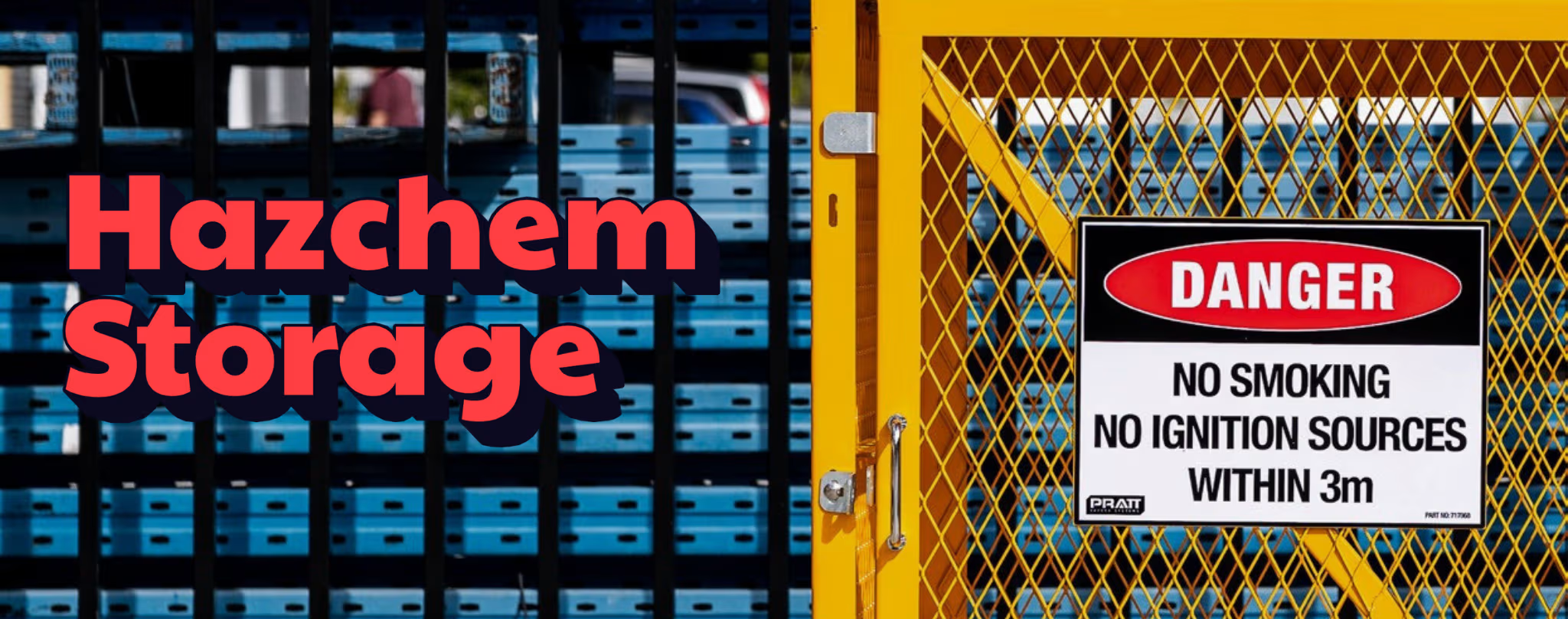[rifft_cart_progress]
Your cart and quote enquiry are empty.
Click here to start browsing our collection.
Click here to start browsing our collection.
When managing hazardous chemicals, following the right storage procedures is essential for safety and compliance. Correct storage minimises risks to people, protects property, and helps prevent environmental harm.
Our Hazchem Storage range includes durable, compliant solutions for every substance class – helping you meet workplace safety compliance standards with confidence.
Read more…
The Health and Safety at Work (Hazardous Substances) Regulations 2017 outline strict requirements for the storage and segregation of hazardous substances. Rifft Safety makes it simple to stay compliant by offering certified equipment, practical advice, and reliable solutions tailored to New Zealand conditions.
When planning your hazardous chemical storage, consider these essential factors:
At Rifft Safety, we supply a complete range of Hazchem Storage products to support compliance and safety across all industries:
Every product in our range is made to withstand local conditions and meet New Zealand’s workplace safety standards. Whether you’re handling flammable liquids, corrosives, or lithium batteries, Rifft Safety has a solution designed for your specific chemical class.
Not sure which system suits your site? Our team of chemical storage specialists can assess your needs and recommend the safest, most practical setup.
We also offer Hazardous Substances Consultancy Services and site risk assessments to help you stay compliant and confident.
Store safely. Stay compliant. Explore our Hazchem Storage range today and protect your people, property, and the environment.
For professional advice or custom configurations, contact our friendly team – we’re here to help.
Read less

Protect your site with our robust range of Portable Containment solutions – mobile, compliant and ready for hazardous-substance management across New Zealand.
Stay safe and compliant with Rifft Safety’s reliable Secondary Containment systems – designed to catch leaks early and protect your people, property, and the environment.
Keep your Safety Data Sheets (SDS) organized, accessible, and protected with Rifft Safety’s range of SDS Holders – for safer, compliant workplaces.
Keep your hazardous substances safe outdoors with Rifft Safety’s Outdoor Storage solutions – strong, weatherproof, and easy to use.
$3,890 .00
Excl GST
$3,590 .00
Excl GST
Enhance your chemical storage setup with Rifft Safety’s Hazchem Storage Accessories – practical, durable, and designed to keep your site safe and organised.
Store your flammable gases safely with Rifft Safety’s Class 2 Flammable Gas Aerosols Cage – NZ-compliant, strong, and suitable for outdoor use.
Protect your workplace with Rifft Safety’s Class 3 Flammable Liquid Storage Cabinets – NZ-compliant, fire-resistant, and secure for all flammable liquids.
Keep your flammable solids safe with Rifft Safety’s Class 4 Flammable Solids Cabinet – NZ-compliant, strong, and built for industrial safety.
Store oxidising agents safely with Rifft Safety’s Class 5.1 Oxidisers Cabinet – NZ-compliant, durable, and designed to protect your workplace.
Store organic peroxides safely with Rifft Safety’s Class 5.2 Organic Peroxides Cabinet – NZ-compliant, fire-resistant, and suitable for industrial use.
$2,355 .00
Excl GST
Store toxic substances safely with Rifft Safety’s Class 6 Toxic Storage Cabinet – NZ-compliant, durable, and ideal for industrial workplaces.
Store corrosive substances safely with Rifft Safety’s Class 8 Corrosives Cabinet – NZ-compliant, durable, and designed for industrial and laboratory use.
Store lithium ion batteries safely with Rifft Safety’s Class 9 Lithium Battery Cabinet – NZ-compliant, robust, and designed for high-demand environments.
$3,199 .00
Excl GST
$2,355 .00
Excl GST
Be the first to hear about the latest products and industry insight